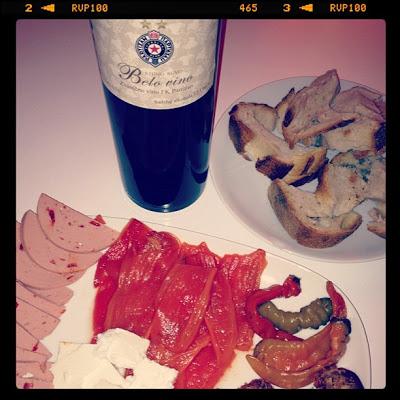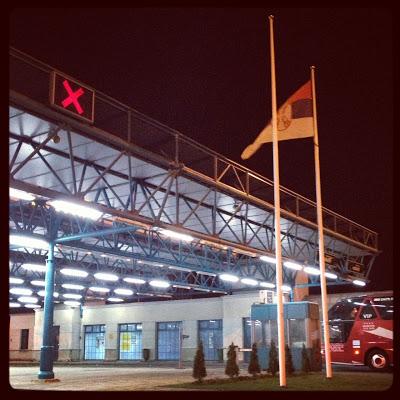
Whenever I can, I like to celebrate the Serbian Orthodox Holidays in Serbia. Christmas and New Year are 2 weeks later than in the Western Christian World (Serbia follows like Russia the Julian Calender) and are a bit more spiritual and less commercially that its Western equivalent.
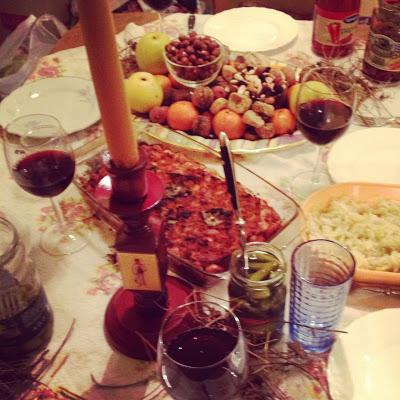 January 6th is Christmas Eve, it's Lenten fast day and traditionally Vegetarian Baked Beans (Posni Prebranac), Pickels (Tursija, Kiseli Kupus), Bread, Nuts and dried fruits are served.
Look here how Christmas in Serbia is celebrated.
January 6th is Christmas Eve, it's Lenten fast day and traditionally Vegetarian Baked Beans (Posni Prebranac), Pickels (Tursija, Kiseli Kupus), Bread, Nuts and dried fruits are served.
Look here how Christmas in Serbia is celebrated.
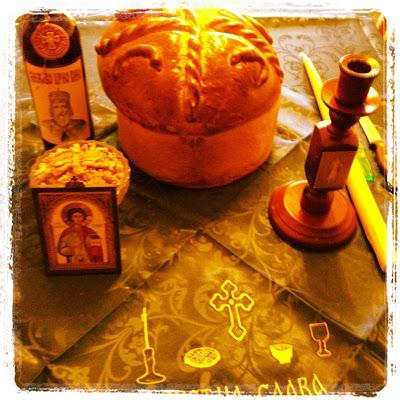 Our family celebrates the family Patron (Krsna Slava) on Saint Stefan's Day (Стефан Првомученик) on January 9th.
This objects are needed for the ritual glorification of the Saint: A candle, the Slava Bread, the Saint Icon, cooked and sweetened grain (Koljivo) and Wine.
Our family celebrates the family Patron (Krsna Slava) on Saint Stefan's Day (Стефан Првомученик) on January 9th.
This objects are needed for the ritual glorification of the Saint: A candle, the Slava Bread, the Saint Icon, cooked and sweetened grain (Koljivo) and Wine.
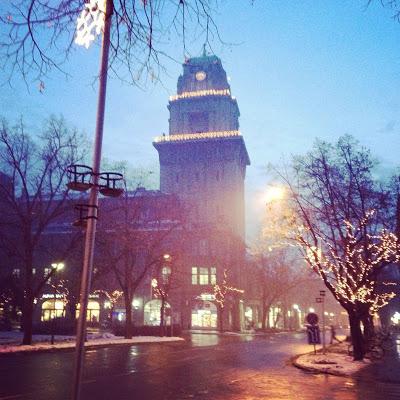 All over January the festive light decoration is still in use until the Holidays are over, and this is around St. Sava Day on January 27th. Saint Sava (Свети Сава) is the Patron Saint of the Schools and Students because he played a central role in education and the beginnings of medieval Serbian literature.
All over January the festive light decoration is still in use until the Holidays are over, and this is around St. Sava Day on January 27th. Saint Sava (Свети Сава) is the Patron Saint of the Schools and Students because he played a central role in education and the beginnings of medieval Serbian literature.As the patron saint of the former Yugoslavia, St. Sava, or Sveti Sava, is commemorated on the anniversary of his death with special church services, speeches, and choral singing. Schoolchildren sing, dance, and recite poems in his honor.
The Serbian New Year is celebrated on January 13th, but I had to leave Serbia the day before, so I put together some goodies I brought with me and and cheered with some meze!
